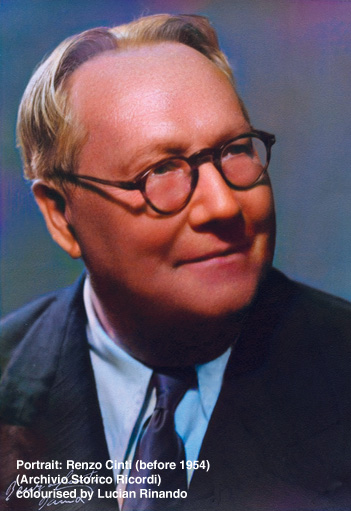
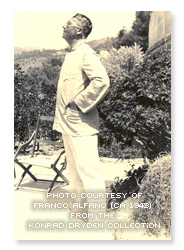
The Italian composer Franco Alfano was born in the neighbourhood of Posillipo, in Naples, in 1875, to a prosperous family of silver engravers. In 1891 the 16-year-old Alfano entered the Conservatorio San Pietro a Majella as a piano pupil of Alessandro Longo, a highly regarded pianist and composer with whom he also studied composition. By his third year at the conservatory Alfano felt that he needed better tutelage elsewhere, so he travelled to Leipzig to attend the famed conservatory there. He had as his composition teacher the renowned Salomon Jadassohn.
After graduation, Alfano toured Russia as a pianist in 1898. Returning to Italy, he spent several months fruitlessly trying to find suitable librettists and, failing to find publishers willing t...
| Title | |
| ALFANO, F.: Cyrano de Bergerac (Palau de les Arts "Reina Sofia", 2007) | |
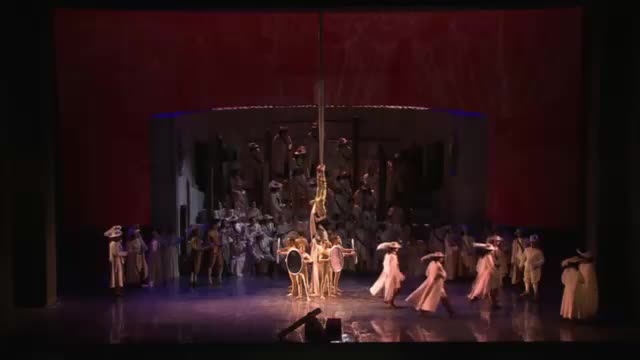
|
ALFANO, F.: Cyrano de Bergerac (Palau de les Arts "Reina Sofia", 2007)
Composer:
Alfano, Franco
Artists:
Accurso, Roberto -- Caruso, Carmelo Corrado -- Chacon-Cruz, Arturo -- Domingo, Placido -- Fournillier, Patrick -- Franco, Javier -- Gilfry, Rodney -- Mentxaka, Itxaro -- Pierro, Nahuel di -- Radvanovsky, Sondra -- Sola, Miguel -- Valencia Regional Government Choir -- Valencian Community Orchestra -- Vazquez, Silvia
Label/Producer: UNITEL |
| ALFANO, F.: Risurrezione [Opera] (Maggio Musicale Fiorentino, 2020) | |
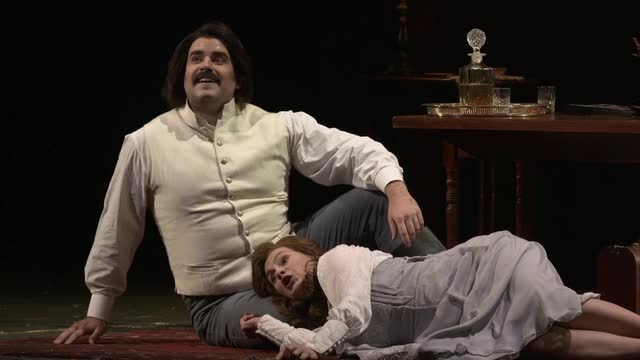
|
ALFANO, F.: Risurrezione [Opera] (Maggio Musicale Fiorentino, 2020)
Composer:
Alfano, Franco
Artists:
Ayroldi, Niccolo -- Bruni, Giulia -- Capra, Silvia -- Duprels, Anne-Sophie -- Fiorentino Maggio Musicale Chorus -- Fiorentino Maggio Musicale Orchestra -- Guinis, Lisandro -- Kim, Leon -- Lanzillotta, Francesco -- Lisanti, Nicola -- Marcacci, Barbara -- Mazzei, Giovanni -- Montesi, Antonio -- Naccarato, Egidio Massimo -- Pericoli, Filomena -- Pirazzini, Nadia -- Pitts, Ana Victoria -- Sauro, Francesca di -- Spina, Gabriele -- Sturlese, Nadia -- Tomasoni, Romina -- Vickers, Matthew
Label/Producer: Dynamic |
| Making of Cyrano de Bergerac (The) (Palau de les Arts "Reina Sofia", 2007) | |
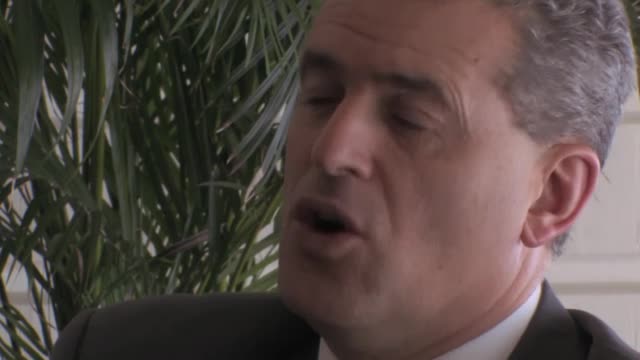
|
Making of Cyrano de Bergerac (The) (Palau de les Arts "Reina Sofia", 2007)
Composer:
Alfano, Franco
Artists:
Chacon-Cruz, Arturo -- Domingo, Placido -- Fournillier, Patrick -- Gilfry, Rodney -- Radvanovsky, Sondra -- Znaniecki, Michal
Label/Producer: UNITEL |
